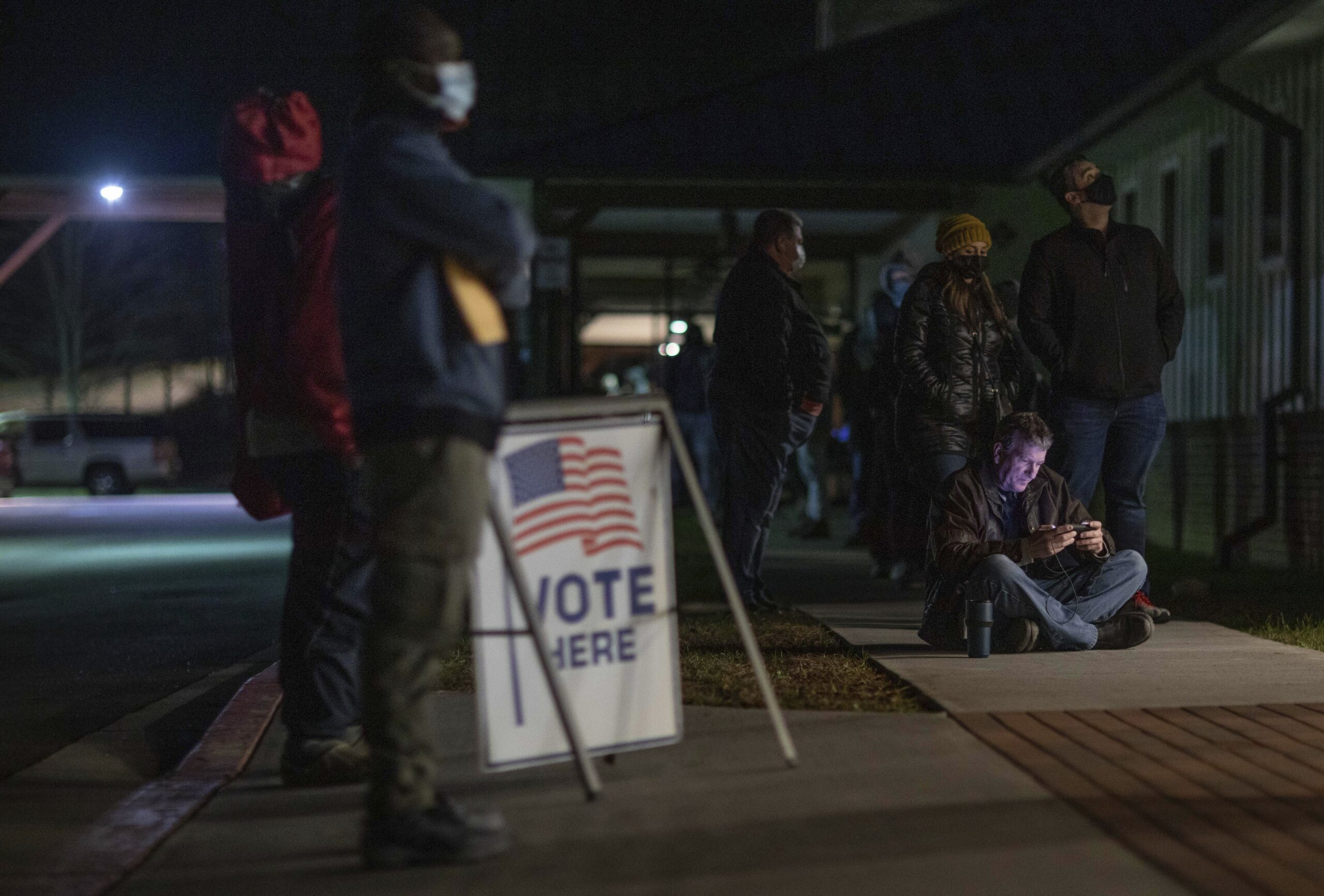Republican lawmakers in Georgia’s state House on Thursday introduced a sweeping election bill that would place restrictions on absentee voting and ban counties from holding early voting on Sundays, a popular day for Black churchgoers who vote during “Souls to the Polls” events.
The bill comes after Black voters and a surge in absentee ballots helped Democrats win the presidential election and two U.S. Senate runoffs in the once reliably red state.
House Bill 531 would require a photo ID for absentee voting, limit the time when an absentee ballot could be requested, restrict where ballot drop boxes could be placed, ban counties from holding early voting on Sundays and restrict the use of mobile voting units, among many other changes.
Fair Fight, a voting rights group founded by Democrat Stacey Abrams, said on Twitter that the proposal “would have devastating consequences for voting rights in Georgia” and “raises too many concerns to count.”
Several Democrats and voting rights groups also criticized the speed with which the bill is moving forward. The bill was heard in the House Special Committee on Election Integrity the same day it was introduced, with little public notice given and before many lawmakers had time to review the many provisions it contains.
The bill’s introduction came the same day that a Republican-controlled state Senate committee approved several other GOP-backed voting bills.
The Senate Ethics Committee voted in favor of Senate Bill 67, which would require that a person include their driver’s license number, other state ID number or a photocopy of an approved ID when submitting an absentee ballot application. The bill could soon move to the full state Senate for a vote.
Currently, there is no photo ID requirement for absentee voting, and voters are verified by their signature. That verification process became the target of repeated false claims by former President Donald Trump, despite election officials in Georgia emphatically saying there was no widespread fraud.
Republican lawmakers have seized on the issue, saying photo ID should be required for absentee voters to safeguard the process and restore confidence in the system.
Democrats say the measure is unnecessary and will only disenfranchise lawful voters.
State Sen. Larry Walker, a Republican from Perry sponsoring the legislation, said it is “an attempt to provide an easily verified way to confirm that the person requesting the ballot is indeed who they say they are.”
Democrats on the committee raised concerns that it could be burdensome for some voters, including elderly and first-time voters who don’t have a driver’s license. They also raised concerns that mailing in a copy of an ID such as a passport could lead to privacy and identity theft issues.
Georgia Gov. Brian Kemp and Secretary of State Brad Raffensperger, both Republicans, have endorsed the idea of requiring photo ID for absentee voting, though neither has yet backed a specific proposal.
The Senate committee also approved Senate Bill 89, which would create a position for a new election official, reporting to the state election board, that could intervene in “low-performing” county election offices. The state election board would also create the criteria for what constitutes an underperforming county.
Fulton County, a Democratic stronghold that includes Atlanta, has often been singled out by state election officials for problems including long lines on Election Day.
State Sen. Sally Harrell, a Democrat from Atlanta, said she feared partisan motivations could come into play. The state election board currently has four Republican members and one Democrat.
The Senate committee also advanced legislation that would mandate that counties begin to process absentee ballots before Election Day, a rule Raffensperger began implementing last election cycle. Another bill approved by the committee would shorten the time counties have to report records of who voted in an election from 60 days to 30 days.
The last bill approved Thursday by the committee, Senate Bill 188, would require the secretary of state to create a public-facing portal that shows how many total ballots were cast by method, before any results could be reported. If passed, the measure could delay results being released by several days.









